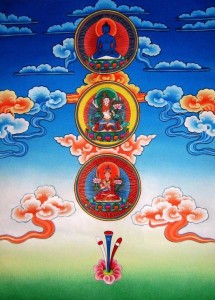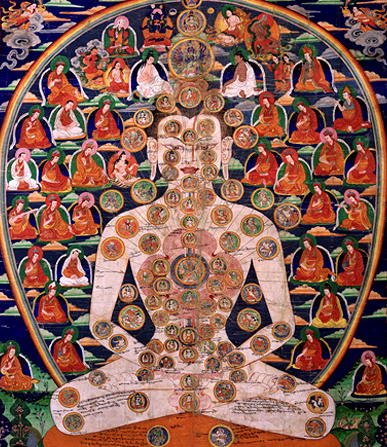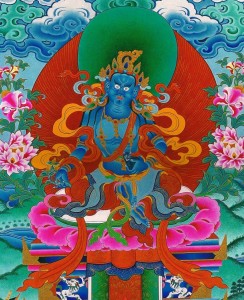བོན་གྱི་ཞབས་རིམ། Rituals: In Tibetan culture, monks are more than simply religious and spiritual practitioners. They also perform many healing rites and ceremonies for the people of Tibet, serving in many ways as health practitioners and spiritual advisors.
They are consulted by the lay population for a number of matters concerning their daily lives such as death of family member, sickness, birth, marriage, new business or project, etc. In such events the lamas conduct astrological readings for those concerned and give advice on what rites and rituals are to be performed to remove any obstacles.
Requests can be made for specific Bon prayer ceremonies or ancient rituals to be performed for the benefit of another person, living, or deceased to accumulate merit, alleviate illnesses and remove obstacles.
You may also request prayers and blessings for health, good karma, vitality, protection and refuge, as well as the removal of obstacles and for ritual purification of new homes and buildings. For those who wish a more elaborate ceremony, it can be carried out by the monks in Nangzhig Monastery in Tibet
Some of these pujas include prayers to overcome external, internal or secret obstacles that may be performed for one time or for an extended period if stronger spiritual support is needed. External obstacles mainly have to do with relationships and business. Internal obstacles would be those coming from negative emotions like fear, doubt or anger. Secret obstacles include the so-called inherent ignorance that obstructs the realization of Buddha-hood
Your request will be kept sacred and confidential. Requests to Nangzhig Monastery receive compassionate attention from all the monks. For is a list of sacred Bon prayers you may wish to consider:
 འཕོ་བ། Pho wa is very important in the Tibetan community and among Bönpos. As we all know, death is certain. At that moment Phowa is the way to transform our consciousness into the nature of the Enlightened Ones and to liberate us from the suffering of cyclic existence (Khorwa). Phowa is performed to help the deceased in recognizing frightening appearances and distracting phenomena as their own nature. Free from appearances of distraction in Bardo, and having experienced realization of the nature of mind, without fear and doubt, the deceased may unite in the nature of their own Enlightenment. Phowa can be requested up until the forty-ninth day after death.
འཕོ་བ། Pho wa is very important in the Tibetan community and among Bönpos. As we all know, death is certain. At that moment Phowa is the way to transform our consciousness into the nature of the Enlightened Ones and to liberate us from the suffering of cyclic existence (Khorwa). Phowa is performed to help the deceased in recognizing frightening appearances and distracting phenomena as their own nature. Free from appearances of distraction in Bardo, and having experienced realization of the nature of mind, without fear and doubt, the deceased may unite in the nature of their own Enlightenment. Phowa can be requested up until the forty-ninth day after death.
 བར་དོ་ཐོས་གྲོལ། Bardo Prayers are performed for the recently deceased to help with a good rebirth in a family that enables them to help many people. Bardo prayers are performed beginning from the third day after death up to the 49th day. On the third day a special prayer called the Jhang Zhu is performed by higher lamas in order to feed and advise the deceased. This is offered seven times, on the last day of each week during this 49-day period to help the deceased pass through each of the six realms of existence.
བར་དོ་ཐོས་གྲོལ། Bardo Prayers are performed for the recently deceased to help with a good rebirth in a family that enables them to help many people. Bardo prayers are performed beginning from the third day after death up to the 49th day. On the third day a special prayer called the Jhang Zhu is performed by higher lamas in order to feed and advise the deceased. This is offered seven times, on the last day of each week during this 49-day period to help the deceased pass through each of the six realms of existence.
 གཡང་སྒྲུབ། Yangdrup: Accumulating material and spiritual wealth from Nyampar Gyalwa: Namgyal Yangdrub: It was taught by Buddha Tonpa Shenrab to his students to bring long life, good health, and prosperity to all. The vase is blessed through the ritual of Namgyal Yangdrub and it is filled with pieces of precious materials such as gold, silver, coral etc that are blessed and sacred earth from holy places. Once the vase is blessed it is kept in a clean place where it cannot be defiled. The Yangbum creates positive atmosphere in the family such as good health, material wealth, spiritual wellbeing, and success in other endeavors.
གཡང་སྒྲུབ། Yangdrup: Accumulating material and spiritual wealth from Nyampar Gyalwa: Namgyal Yangdrub: It was taught by Buddha Tonpa Shenrab to his students to bring long life, good health, and prosperity to all. The vase is blessed through the ritual of Namgyal Yangdrub and it is filled with pieces of precious materials such as gold, silver, coral etc that are blessed and sacred earth from holy places. Once the vase is blessed it is kept in a clean place where it cannot be defiled. The Yangbum creates positive atmosphere in the family such as good health, material wealth, spiritual wellbeing, and success in other endeavors.
